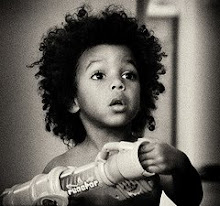The PR of Terror
In this week's reserve reading, Tamar Liebes and Zohar Kampf explore the changing nature of media coverage on terrorism following the September 11th attacks on New York and Washington D.C. They argue that the media has essentially made celebrities of terrorists by shifting their coverage from the victims to the attackers.
CNN broadcasting an interview with Osama bin Laden was quoted by CBS News president Andrew Heyward as being comparable to "interviewing Adolf Hitler or Emperor Hirohito." Heyward must have forgotten that in 1938 Hitler was named Time Magazine's "Man of the Year." And why are our enemies always compared to Hitler? First Osama, then Saddam, Kim Jong Il. Admittedly not nice guys. But I don't think any of them can hold a candle to Hitler. Or are the incessant WWII references simply intented to draw a parallel between this war and the last just war fought by this country?
The main reason for the shift in coverage is the motive. Showing the effect terrorism has on the victims elicits feelings of sympathy and sadness from the audience. Showing the terrorist makes people feel scared. Is it just a coincidence that everytime a new bin Laden tape comes out, President Bush's poll numbers go up? I don't think so. He's just reminding people to be afraid. Keep the polulace afraid and they will do or believe anything. How else can you explain the outrageous claim that Saddam was going to unleash chamical weapons over major cities by means of UAVs? His military wouldn't have been able to hit Tel Aviv, much less New York. But people were willing to believe anything because they were scared.
James Madison said, "If tyranny and oppression come to this land, it will be in the guise of fighting a foreign enemy." Osama bin Laden is the modern incarnation of 1984's Emmanuel Goldstein. The "5 minute hate" begins whenever his latest tape is broadcast on CNN. Wasn't he our guy in Afghanistan during the Soviet occupation? Oh, I must be mistaken. I forgot that Oceania was always at war with Eastasia.

